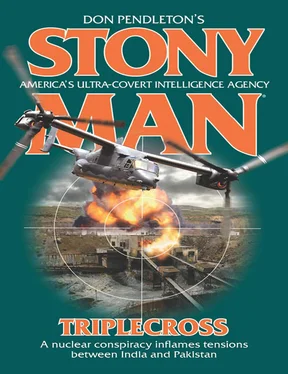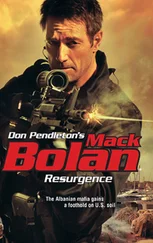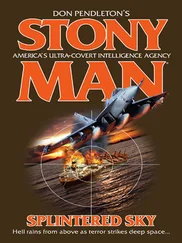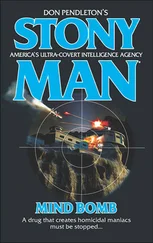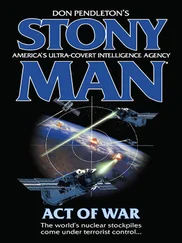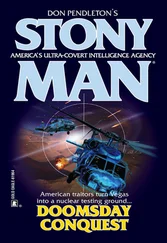Once inside, Hooth switched on the LED lantern. It was feeble, both from cold and because the batteries were not fully charged. The lantern was solar with a crank backup. Later, after they ate, they would draw lots to see who cranked it this evening. There was never enough time, before sleep beckoned, to charge the lantern fully.
Gratefully, Janwari took off his pack and let it fall to the floor of the shelter. From his shoulder he took the Type 56 Kalashnikov-pattern assault rifle and placed it next to the pack. Many Pakistani troops were issued the excellent Heckler & Koch G-3 battle rifle. There weren’t enough to go around, particularly here. He and his men were forced to make do with the Chinese-produced AK clone. Most of these, like Janwari’s, were wrapped in strips of white adhesive-backed cloth tape. The tape on Janwari’s weapon was dirty and worn.
As Janwari took out his bedroll and began to spread it across his third of the shelter, Gola was already lighting a can of Sterno. The three men huddled around the wisp of flame, spreading their parkas to catch the scant heat. Gola began working on a can of soup with his pocketknife, sawing away at the top of the can. If Janwari counted correctly, this was the last of the smuggled cans Gola had crammed into his pack before they’d left their base camp near Rawalpindi.
“‘The land is so barren,’” Hooth said.
“‘The passes so high,’” Gola continued.
“‘Only best friends and worse enemies come by,’” Janwari recited, finishing the traditional quote about the inhospitable land in which they found themselves. Gola smiled as he shifted the can of soup atop the Sterno can. The heat had to be burning his fingers, at this point, but he did not seem to mind. It was also possible he could not feel his digits. Janwari made a mental note to check Gola for frostbite.
“It is not much of a ceasefire,” Hooth said. “Walking in circles in the cold.”
“You have said the same thing every night for five days,” Gola said. He stirred the soup with the blade of his pocketknife. “I believe we all know your opinion on the subject by now.”
“It is better than fighting,” Janwari said. “But not much.”
“And you have said the same, as well,” Gola accused.
“Shall I complain that the soup has been the same for five days?” Janwari asked. He allowed himself a smile as he pried his frosted goggles from his stiff, frozen head wrap.
“We should all be grateful,” Hooth said. “I suppose. But this marching to nothing...”
“Crawling to nothing,” Gola corrected.
Snow pelted the shelter. They would be forced to unfold their shovels and dig out of the snow in the morning.
“Yes,” Hooth said. “Crawling to nothing.” He looked to Janwari. “When will the patrol be released? When can we return to base?”
“I cannot get anyone at Command to acknowledge my requests,” Janwari said. “Always it is the same. ‘Return to your scheduled patrol route. Follow your orders. Stop asking questions.’”
“They say this?” Hooth asked.
“They imply this,” Janwari said. “One learns to read what is meant and not what is said.”
“It is ready,” Gola said. “The soup is as warm as I can make it.” As cold as it was here, that meant simply tepid by normal standards. But Janwari’s mouth watered at the thought of a meal that was not rock-hard, frozen protein bars or the unappealing rations issued by his military. From his pack he took his canteen cup. Gola and Hooth were already prepared with their own.
Outside the shelter the howling winds were growing even stronger. The fabric of the little tent was whipped to and fro. Hooth shook a fist at the walls, then rubbed his hands together.
Gola poured the soup expertly. He divided the amber liquid among their cups. Janwari gulped his, knowing that in only minutes the soup would lose what little warmth it contained. Gola sipped his more deliberately, while Hooth followed Janwari’s example.
“I am thinking of a place,” Gola said.
“No, not this again,” Janwari replied. He put a hand to his ear. “Did you hear that?”
“I will play,” Hooth said. To Janwari, he said, “The storm is very bad. The worst yet. We will be beaten half to death with balls of ice before this is over.” Turning back to Gola, he spread his hands as if describing a scene. “Is it a warm place, Gola, full of beautiful women in indecent bathing suits? A place where they bring you tropical drinks with umbrellas in them?”
“Yes,” Gola said. He frowned. “You should not have guessed it so quickly.”
“Why not?” Hooth asked. “You think of the same place every time. As do we all, I think.”
“Someplace warm,” Gola said wistfully.
“Someplace full of pretty girls,” Hooth reminded him.
“My wife would be jealous,” Janwari noted. “And she is already beautiful. I wish only to get home to her. I do not begrudge either of you your dancing girls and your beaches.”
“They are not dancing girls,” Gola corrected. “Merely women in very tiny bathing suits. If they dance, it is simply an added benefit.”
“Have you leave coming?” Hooth asked. “I have some.”
A surge of storm wind made the shelter vibrate around them.
“Neither as soon nor as long as I would like,” said Gola, shaking his head. “Were it up to me, I would—”
“You would what?” Hooth said.
Janwari looked to his subordinate. Gola had stopped and now stared, wide-eyed, at the dwindling flame of the Sterno can. “Gola?” Janwari asked. “What is it?”
Gola shook his head, slowly. He put his hand over his stomach.
Cold wind whipped through the tent, causing the cooking flame to gutter. Janwari cursed and reached for the flap of the shelter. “It has come unsealed again, like before. Help me with this before we are turned to icicles.” On his knees in the tent, he maneuvered past Gola.
The chill wind issued from a tiny circular hole in the tent. The hole was at chest level to the kneeling men within.
Janwari’s eyes widened in horror. He looked to Gola. Gola took his hand away from his stomach.
Gola’s palm was covered in blood.
As the other two men watched, crimson spread across the white winter camouflage of Gola’s uniform. He pitched forward into the can of Sterno, spilling the rest of his soup. The entry wound in his back was small, almost unnoticeable.
“Get down!” Janwari screamed.
Hooth was too late. As Janwari flattened himself to the floor of the tent, automatic gunfire pierced the tent from two directions, shredding the fabric, spraying Hooth’s blood across Gola’s corpse. The thick, warm liquid specked Janwari’s face and back and as he waited for the fusillade to subside.
Snow blew through the tattered shelter freely now. Janwari crawled to Hooth’s body and put two fingers against the man’s neck. There was no sign of life. Gola, too, was dead. Janwari crawled to his pack, ripped it open and removed the heavy radio.
There was a bullet hole in its face.
Janwari cursed his poor fortune. Scrambling to drag on his goggles, he threw his face wrap haphazardly around him and took up his Type 56 assault rifle. Then he was plunging outside into the heavy snow, into the driving wind, as another barrage of automatic gunfire raked the shelter behind him. Gola and Hooth were each ripped from boots to skull by the merciless bullets. If they had not been dead already, they surely could not have survived that.
It took Janwari precious seconds to realize he had lost his bearings in the snowstorm. What could he do? He had no means to call for help, no idea who was attacking and no idea from which direction the invaders had come. He saw only the shelter beginning already to blow away in pieces, and the bloody corpses of the two men whom he had counted as friends.
Читать дальше
